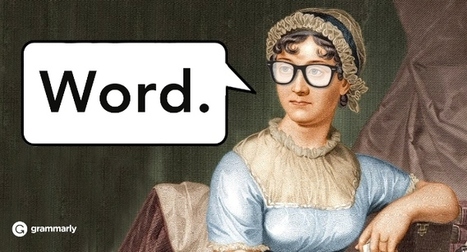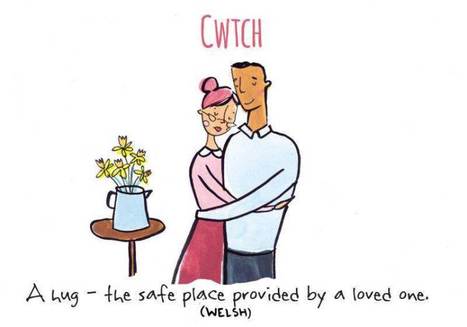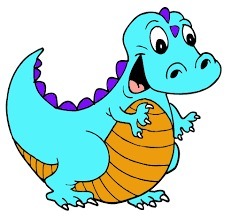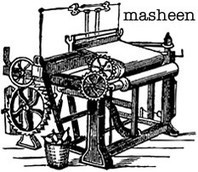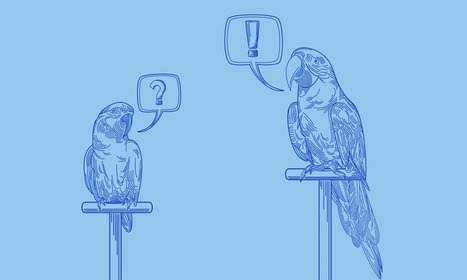 Your new post is loading...
According to authors Julie Barlow and Jean-Benoit Nadeau, the word bonjour might be the most important word in the French language. The Canadian writing duo are behind the new book The Bonjour Effect: The Secret Codes of French Conversation Revealed, which dissects the unstated yet essential rules of French politeness and conversational etiquette.
“France is the most visited country in the world, with 84 million visitors per year,” Barlow told The Local. “It’s in some ways very familiar to English speakers and they have high expectations when they come to France.
“What visitors don’t realize is that France is a different culture with entirely different codes, and if you want to communicate well with the French, you need a basic understanding of them.”
The Oxford English Dictionary (OED) records themself from the 14th century. It doesn’t have a separate entry of its own, but a note at the entry for themselves informs us: in standard English themself was the normal form to c1540, but disappeared c1570. Themselfs, themselves appears c1500, and became the standard form c1540.
So for around 150 years, themself (though ending with the singular suffix -self) was considered to be correct when used to refer to a plural subject. A little more OED-delving shows that a similar situation existed when it came to first person plural reflexive pronouns. The form ourself is first recorded in the 14th century, when it was an accepted usage. There must have been a move towards pluralizing the singular suffix –self to –selfs or –selves for plural reflexive pronouns in the early to mid 16th century, when the forms ourselves and themselves first appeared.
History credits the sixty-four years of the Victorian era with peace, economic success, intense emotions, sophisticated tastes, and national pride. Though Jane Austen died before Queen Victoria took the throne in 1837, her literary works give a window into the people over which the monarch governed. Let’s look at ten revealing words and expressions from Jane Austen’s iconic novels. >LEGGI TUTTO
Shakespeare is not only known as a timeless playwright, but also as a prolific inventor of words. Although modern researchers have found that some words originally attributed to him, such as puke, have earlier sources, there are still many that hold up today as Shakespeare’s creations according to the Oxford English Dictionary:
Bandit (Henry VI, Part 2. 1594)
Critic (Love’s Labour Lost. 1598)
Dauntless (Henry VI, Part 3. 1616). >LEGGI TUTTO
There are some feelings that can’t be expressed through words.
Except wait. They can. Just not in English, because our language is often pretty rubbish and doesn’t have the words we need.
Like kummerspeck (literally grief bacon, meaning the weight put on through emotional eating) and schadenfreude (taking pleasure from other people’s bad luck).
And in matters of love, it turns out other languages have got a bunch of romantic feelings covered, word wise. While we fail.
Emma Block created illustrations for a bunch of ultra romantic untranslatable words for Vashi. They’re lovely, but make us feel a bit crap about the English language. We need equivalents for these, asap. >LEGGI TUTTO
Academics cataloguing a definitive thesaurus of the Scots tongue have identified no fewer than 421 terms used to describe wintry conditions.
From the most obvious words, such as “snaw”, through to unusual descriptions such as “spitters”, which means small drops or flakes of snow in a wind-driven rain, the growing archive confirms the country’s obsession with the weather.
The researchers at the University of Glasgow said that the array of different words demonstrated how important it was for previous generations to warn one another about potentially hazardous conditions.
Language traditionalists beware: Trying to define some of Oxford Dictionaries' newest entries might make you "rage-quit."
The online dictionary, created by the Oxford English Dictionary's publishers, issued a quarterly update Thursday, according to The Associated Press.
Katy Steinmetz wrote for Time that Oxford Dictionaries focuses on modern language, "words that people are using now and how they're using them."
Because of the emphasis on how people communicate today, Oxford Dictionaries differs from the historical Oxford English Dictionary and shows through what mediums new words come from, Steinmetz wrote.
"Their new words often arise from fresh technology and pop culture and might include Internet slang (like new entry pwnage) that would get laughed out of the OED’s admittance office," according to Time. "As with every update, the additions reflect who English-speakers are."
From "awesomesauce" to "hangry," the new entries explain how we feel, use technology and, especially this year, as NPR reported, describe food. Take the quiz below to see if you can define the new words.
|
“What am I doing in New York? I started out with a ‘giobba’ and a ‘bosso,’ but now I have my very own ‘bisinisse.’”
Let’s see if you have any idea what our Italian-American friend might be talking about here. No, it has nothing to do with botany: the Italian-American in question is actually telling his family back in Italy that he got a job (“giobba”) with a boss (“bosso”), and now he has managed to start up his own business (or “bisinisse”).
According to the Oxford Dictionary, the 500 most used words in the English language have at least 14,070 different definitions. This is an average of 28 meanings per word. So, it shouldn’t come as a surprise that our communication attempts sometimes fail because of misconceptions and ambiguity. We need to have clear and precise concepts connected to our terms in order to design reliable termbases and glossaries. Given that one of the goals of terminology management is to facilitate communication and avoid misunderstandings and confusion, it would be helpful to understand the basics of the semiotic triangle, not only because it introduces and explains some of the basic elements upon which terminology is grounded, but also as a foundation for further reading and research.
Englishmen Charles Kay Ogden and Ivor Armstrong Richards wrote the book “The Meaning of Meaning: A Study of the Influence of Language upon Thought and of the Science of Symbolism” (1923), and the semantic triangle was the means they used to explain that understanding comes from within the people rather than from the words they just interpret or, as the saying goes, words don’t mean; people mean.
Here’s an ambiguous sentence for you: “Because of the agency’s oversight, the corporation’s behavior was sanctioned.” Does that mean, 'Because the agency oversaw the company’s behavior, they imposed a penalty for some transgression' or does it mean, 'Because the agency was inattentive, they overlooked the misbehavior and gave it their approval by default'? We’ve stumbled into the looking-glass world of “contronyms”—words that are their own antonyms.
1. Sanction (via French, from Latin sanctio(n-), from sancire ‘ratify,’) can mean ‘give official permission or approval for (an action)’ or conversely, ‘impose a penalty on.’
2. Oversight is the noun form of two verbs with contrary meanings, “oversee” and “overlook.” “Oversee,” from Old English ofersēon ‘look at from above,’ means ‘supervise’ (medieval Latin for the same thing: super- ‘over’ + videre ‘to see.’) “Overlook” usually means the opposite: ‘to fail to see or observe; to pass over without noticing; to disregard, ignore.’
Dictionaries incorporate new words every year. Some are pop culture inventions like jeggings, photobomb, and meme. Other words, like emoji and upvote, spring up from technology and social media. Dictionaries respond by creating definitions for anyone who cares to know what a twitterer is. And thank goodness they do; you can learn what an eggcorn is simply by turning a few pages in your trusty updated dictionary.
Interestingly, not all newly added words are recent developments. The Oxford English Dictionary June 2015 new words list included autotune, birdhouse, North Korean, and shizzle! North Korea was founded in 1948. The initial release of the autotuner audio processor was in 1997. >LEGGI TUTTO
Motivated both by nationalist fervor and a desire to reform spelling, Webster proposed numerous spelling changes in his work. Some of these, such as dropping the U from honour and mould, were accepted in America. Others, such as masheen (and spelling women and ache as wimmen and ake), were not.
Words change meaning over time in ways that might surprise you. We sometimes notice words changing meaning under our noses (e.g., unique coming to mean “very unusual” rather than “one of a kind”) — and it can be disconcerting. How in the world are we all going to communicate effectively if we allow words to shift in meaning like that?
The good news: History tells us that we’ll be fine. Words have been changing meaning — sometimes radically — as long as there have been words and speakers to speak them. Here is just a small sampling of words you may not have realized didn’t always mean what they mean today.
|

 Your new post is loading...
Your new post is loading...






